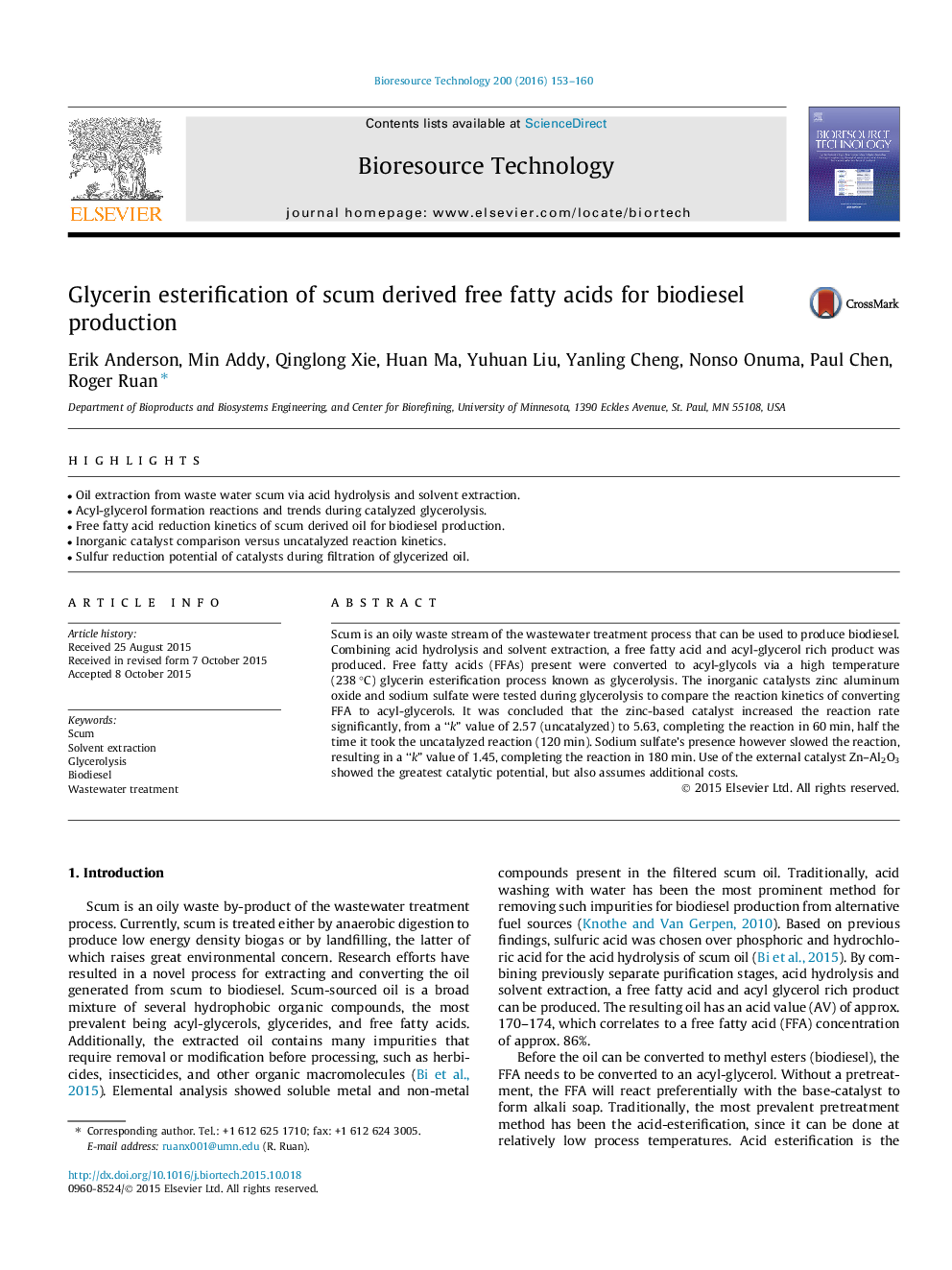| Article ID | Journal | Published Year | Pages | File Type |
|---|---|---|---|---|
| 7072809 | Bioresource Technology | 2016 | 8 Pages |
Abstract
Scum is an oily waste stream of the wastewater treatment process that can be used to produce biodiesel. Combining acid hydrolysis and solvent extraction, a free fatty acid and acyl-glycerol rich product was produced. Free fatty acids (FFAs) present were converted to acyl-glycols via a high temperature (238 °C) glycerin esterification process known as glycerolysis. The inorganic catalysts zinc aluminum oxide and sodium sulfate were tested during glycerolysis to compare the reaction kinetics of converting FFA to acyl-glycerols. It was concluded that the zinc-based catalyst increased the reaction rate significantly, from a “k” value of 2.57 (uncatalyzed) to 5.63, completing the reaction in 60 min, half the time it took the uncatalyzed reaction (120 min). Sodium sulfate's presence however slowed the reaction, resulting in a “k” value of 1.45, completing the reaction in 180 min. Use of the external catalyst Zn-Al2O3 showed the greatest catalytic potential, but also assumes additional costs.
Related Topics
Physical Sciences and Engineering
Chemical Engineering
Process Chemistry and Technology
Authors
Erik Anderson, Min Addy, Qinglong Xie, Huan Ma, Yuhuan Liu, Yanling Cheng, Nonso Onuma, Paul Chen, Roger Ruan,
